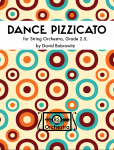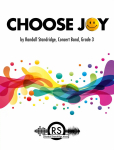Why I wrote (not) Alone
Many who live with mental health conditions experience a profound sense of isolation. Discussing these issues and more so, identifying as someone who lives with them, has been extremely taboo in our society. Thus, many suffer in silence, facing their troubles with no support. But, as the title of the work implies, they are not alone.
I live with depression and anxiety. I have tried to use my platform to normalize discussions about mental health and to help start conversations about this issue. Here are some statistics you may or may not be aware of:
1 in 5 of adults in the US experiences mental health issues each year.
1 in 6 youths in the US experiences mental health issues each year.
90% of suicides worldwide are attributable to mental illness.
Suicide is the 2nd leading cause of death in the United States.
With statistics like this, it is shocking and frustrating that so many people are reluctant to acknowledge, discuss, and address these issues.
In 2021, I was asked to create a work for wind ensemble addressing mental illness. The resultant work, “unBroken”, is one of my favorite works I have ever created, both from an aesthetic and personal perspective. However, this work is very advanced (Grade 5), which limits its demographic for performers and, thus, audiences.
Those of us that teach or have taught middle school and high school know that there is a need to address this issue at younger ages, and to make such tools available to middle schools and developing high school ensembles.
I decided to make this work a consortium, expecting there would be 20-30 schools that would support such a piece. 40 tops.
The consortium included over 300 schools.
This is an issue whose time has come. The time is now. We need to talk about this, and we are going to talk about this.
We are going to show them all that they are not alone.
About the work
The piece starts very softly, with both beauty and dissonance. The individual is aware that something is wrong but is trying to bravely persist. A soloist introduces the main theme of the work, a bittersweet melody that is lovely and vulnerable. As the first segment continues, dissonant elements and a three-note descending theme signals the onset of a mental health crisis.
The second segment is manic and violent. The individual struggles with their condition as everything seems to be in darkness. The piece builds to a thunderous moment before dying away into a cloud of confusion. Their heartbeat is heard racing and then slowing. The individual is broken.
The original theme sounds out again, unaccompanied, but others join in. The work rises to a triumphant climax, as a sense of solidarity is achieved. The work ends with the soloist again, but more confident and with others there for support.
gedruckt






